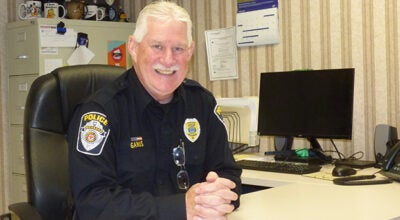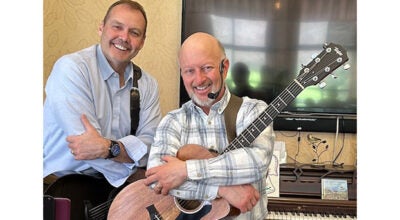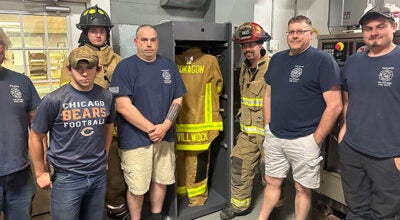Examining the mind of a murderer
Published 5:32 pm Thursday, February 2, 2012

Dakotah Eliason, who is serving a life sentence for shooting his grandfather, appeared in court Thursday for an evidentiary hearing to determine if he received ineffective counsel from his former attorney Lanny Fisher. Daily Star photo / AARON MUELLER
Will Dakotah Eliason be granted a new trial?
The question was left unanswered after a second day of an evidentiary hearing, ordered by the Michigan Court of Appeals, to determine if the 16-year-old Niles resident received ineffective counsel from his former attorney, Lanny Fisher, during his murder trial in August 2010.
Eliason, found guilty of first-degree murder, is serving a life sentence without parole for shooting his step-grandfather in his sleep. He was tried as an adult although he was 14 at the time.
At the end of the proceedings Thursday, Berrien County Judge Scott Schofield ordered the defense and prosecution submit written closing arguments by March 5 before he makes his ruling.
If Schofield determines that Eliason received constitutionally deficient representation, he may receive a new trial.
Appellate attorney Jonathan Sacks is arguing Fisher provided ineffective counsel by not calling an expert witness to explain why Eliason seemingly showed little or no emotion or remorse after the shooting.
Sacks called Dr. James Henry, a professor and director of the Child Trauma Assessment Center at Western Michigan University, as an expert witness Thursday.
Henry conducted an interview and evaluation of Eliason in August 2011 and produced a report that concluded he was suffering from post-traumatic stress disorder (PTSD) and dissociation.
During questioning from Sacks, Henry explained dissociation as a phenomenon of the mind in which “life becomes like watching something happening to someone else and not yourself.” Eliason described it after the incident like “watching a movie” of himself.
A series of traumatic events, including his biological mother giving up her parental rights, the death of his dog, the suicide of a close friend, breaking up with his girlfriend and his family losing its home, contributed to the symptoms, Henry said.
Henry said Eliason was experiencing “intrusive and racing thoughts,” symptoms of dissociation, that led him to kill his step-grandfather, Jesse Miles.
He also explained that dissociation, the feeling of being “outside” of himself, also explains his lack of emotion and remorse after the incident.
“It’s this feeling that it’s not happening to me, like watching a movie of yourself,” Henry said.
Based on his evaluation of Eliason, Henry said he disagreed with Prosecutor Art Cotter’s portrayal of Eliason as a sociopath with no conscience, although the prosecutor never used the word “sociopath” in his arguments during trial.
During cross-examination from Berrien County Assistant Prosecutor Beth Wild, she questioned the credibility of Henry’s evaluation.
She asked if the report could have been “skewed” since it was done 17 months after the shooting. Wild also pointed to the fact Eliason was on antidepressants during Henry’s interview with him and that several months in prison could have affected his mental state.
She also pointed to inconsistencies between Henry’s evaluation and the three previous evaluations done by other mental health experts before the trial.
Wild and Henry were in disagreement on whether Dakotah’s debating between suicide and homicide on the night of the shooting was premeditation or a series of “racing and intrusive thoughts,” as Henry claimed.
After being questioned by Sacks and Wild, Schofield addressed Henry.
“If you are defending Dakotah, is there some glaring inadequacy with those three reports (done by mental health experts before the trial) in order to need a fourth report?” Schofield asked.
Henry said a defense attorney should “want to know why a boy who had never harmed anyone would kill someone who he loves.”
“Those three reports didn’t address the question. With a trauma lens, it makes complete sense,” said Henry, who specializes in child trauma.
During the first part of the hearing in December, Fisher, Eliason’s former attorney, admitted he hadn’t thought to call an expert witness such as Henry. Fisher has also signed an affidavit indicating he should have called another expert witness during the trial.






